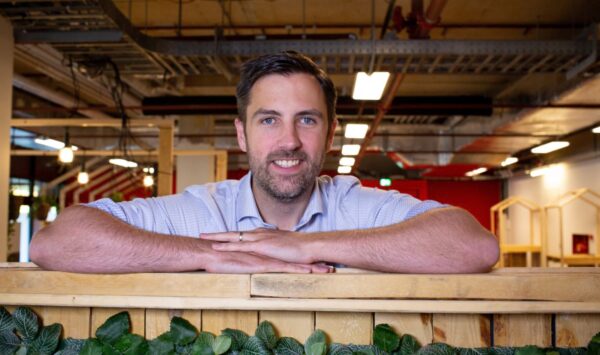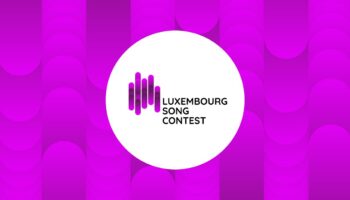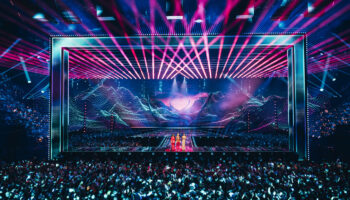Sietse Bakker, the 2021 Eurovision Song Contest Executive Producer has shed more light regarding the upoming Eurovision Song Contest in Rotterdam.

Sietse Bakker has been reappointed as the Executive Producer for the forthcoming 2021 Eurovision Song Contest in Rotterdam.
Following the official announcement of the 2021 Eurovision Song Contest dates, Sietse Bakker has answered a number of questions and thrown more light ons the cancelleation of this year’s event and the upcoming Eurovision editition in Rotterdam.
The 2020 Eurovision Song Contest was annulled on 18 March, what happened behind the scenes?
We knew the EBU’s decision to cancel the Eurovision Song Contest 2020 would likely come that day, so we were prepared. It was still tough because we had to inform our team—a tough message to bring to people who had worked on it for so many months. Especially since, due to the social distancing measures that were already in place, people were working from home. So we chose to bring across the bad news more personally via a video message.
How did the impact of the cancellation affect the 2020 ESC team?
I think it has been hard on everyone, but at the same time, we all realized that the world was, and in many ways still is in a pretty rough place. Our drama was relatively small compared to other things that are going on.
When we decided to produce Eurovision: Europe Shine A Light, part of the team very quickly shifted gears from sadness to positively looking forward, eager to make something special.
Why was Eurovision 2020 cancelled? Why wasn’t there a competition?
One of the first considerations we had was obviously about the 41 artists that would have taken part. They put their heart and soul into their performance. They were going to have what may have been the most important 3 minutes of their career on that stage and that dream was suddenly falling apart. We knew we had to find a way to honour them all in one show, which we ended up doing with Eurovision: Europe Shine A Light.
We did ask ourselves whether we could still do some type of competition and talked about that at length with the EBU. But in the end, a competition comes down to fairness and creating a level playing field, which you do best by putting all of the performers on the same stage with the same possibilities in terms of LED content, cameras and special effects. You cannot possibly create that by letting contestants perform alone from a studio in their own country or by comparing music videos. It is not a fair competition and it’s not the competition the artists signed up for.
How was Eurovision: Europe Shine A Light put together? What were the main challenges?
The idea to do it was already there, I think, 2 days after the cancellation. We brought it to the EBU and we were very happy that so many broadcasters, including the 41 participating broadcasters of the 2020 Contest, decided to show it on TV.
It was tough to produce the show. People couldn’t produce TV as easily as normal, considering the strict social distancing policies and often working remotely. We had to find a big studio large enough to produce the show while respecting the regulations. Luckily we had Studio 21 right here in Hilversum, just around the corner from our office, which was perfectly suitable for an event like this.
How was Europe Shine A Light elaborated taking into account the crucial situation afflicting Europe?
When we started the process, we had 2 major challenges. First, we didn’t know what Europe was going to look like on May 16: Would the situation get better? Would it get worse? And we didn’t know what the situation was going to be like from country to country. Some countries got hit very hard by the coronavirus and the measures to contain it. Other countries were hit as well, but not as hard as, for example, Italy or Spain.
We thought it was important to find a tone of voice that would be suitable for all countries that would broadcast the show, regardless of what the world would look like that day.
When was the final decision made to host Eurovision 2021 in Rotterdam?
Actually, the decision was taken only a few days before the announcement! Fortunately, the City of Rotterdam confirmed very early on they were eager to host it again. They also made available the financial resources and the Ahoy venue, where the Contest will take place.
We also had a lot of homework to do to come that that decision: To secure the budget, gather the team and our key suppliers… Above all, we had to consider whether we could hold the Contest no matter the circumstances next year.
Together with the EBU, we will use the next few weeks and months to prepare all sorts of scenarios in detail. The final decision, which had to be taken by the NPO board, was taken just a couple of days before Eurovision: Europe Shine A Light and we thought that the live show was a natural moment to announce it.
Eurovision 2020 was cancelled quite late, what effect will this have on the upcoming edition?
Because the Contest was cancelled mid-March, a lot of the work was already done. A lot of it was even presented during the Heads of Delegation meeting the week before. Think of building the team, finding the best suppliers, building the stage, the overall creative concept, the branding, the slogan, that’s all been done. In the next few months, we are going to think of which of those elements we want to take with us to 2021 and what we want to rethink. We want to make a show that fits with the spirit of 2021 and we want to surprise people again!
Will we have the same slogan for Eurovision 2021?
Whether we will use Open Up as a slogan for next year is yet to be decided, but it feels very relevant, especially in these times. I’m actually curious what readers think from home – maybe you can let us know in the comments: Should we keep Open Up, or should we try something different?

How did Rotterdam face the cancellation of the event in 2020 and the official announcement of the event in the city next year?
The first time I came to Rotterdam after they applied to be the host city, they told us a story from 80 years ago when the city was destroyed in a bombardment. They recalled that, in just a matter of days, they gathered the best architects to rebuild their city centre and rethink what it was going to look like.
And while I don’t want to compare that at all, it does show that Rotterdam has a remarkable ability to get back up when times are tough. And that was reflected in their commitment to the Contest when they applied last year and when it got cancelled. It would mean a lot to Rotterdam to host this Contest – they’re incredibly eager and I know they cannot wait to welcome the delegations, press and fans to Rotterdam next year.
Will the Eurovision fans be able to attend the competition next year?
I think the last few months showed us that it is very difficult to predict the future. Who would have known that we would end up in this situation just half a year ago? It’s also hard to predict what the future will be like, but we are optimistic. We are going to work hard in the next few weeks and months, together with the EBU and the City of Rotterdam, to develop scenarios to make sure that next year there will see a Eurovision Song Contest!
What the Contest will look like is almost impossible to say, but I can say this: At the heart of the Eurovision Song Contest are music, the artists, the fans, the interaction between them and, whatever the situation is like next year, we will find a way to make that interaction happen. And, hopefully, we will be able to get everyone to Rotterdam to make the Eurovision Song Contest better than ever and to celebrate stronger than ever.
How was your collaboration with the former ESC Exeuctive Supervisor Mr. Jon Ola Sand?
It’s been a great collaboration from the day the Netherlands won the Eurovision Song Contest in Tel Aviv. He’s been very supportive to us all along and has visited us many times. I’ve been on the phone with him several times a week and he has been particularly supportive over the last few months as it got tough.
At the same time, we felt sorry because we knew that this was going to be his last year at the Eurovision Song Contest and it would have been great to give him a spectacular Eurovision Song Contest as sort of a goodbye gift. Circumstances made that difficult, but we hope that with Eurovision: Europe Shine A Light was a worthy goodbye for him. We’ll miss him, definitely, and we wish him all the best in the future.

You have 2 years to prepare for hosting Eurovision in Rotterdam. Is this an advantage? Will this help improve the event further?
As a public broadcaster, when you win the Eurovision Song Contest, you want to make the best Eurovision Song Contest ever. You want to do better than the previous year. So to have 2 years to prepare for the Contest feels like an advantage, but what that advantage will bring us is impossible to say now. I can answer that question next year, hopefully!
What I do know is this: A lot of work has been done and a lot of knowledge has been gathered. We have learnt a lot over the last year, but I also know that the year ahead will be challenging. We have to work out different scenarios, we have to think of how we can make the Contest happen no matter what. So it brings with it new challenges, but the ambition to make it happen and to make the best Contest to date, that ambition is definitely still there.
The 2021 Eurovision Song Contest is scheduled to be held at the Rotterdam Ahoy on 18, 20 and 22 May. The show will co-produced by the Dutch public broadcasters NPO, NOS, AVROTROS and the EBU.
Source: eurovision.tv







